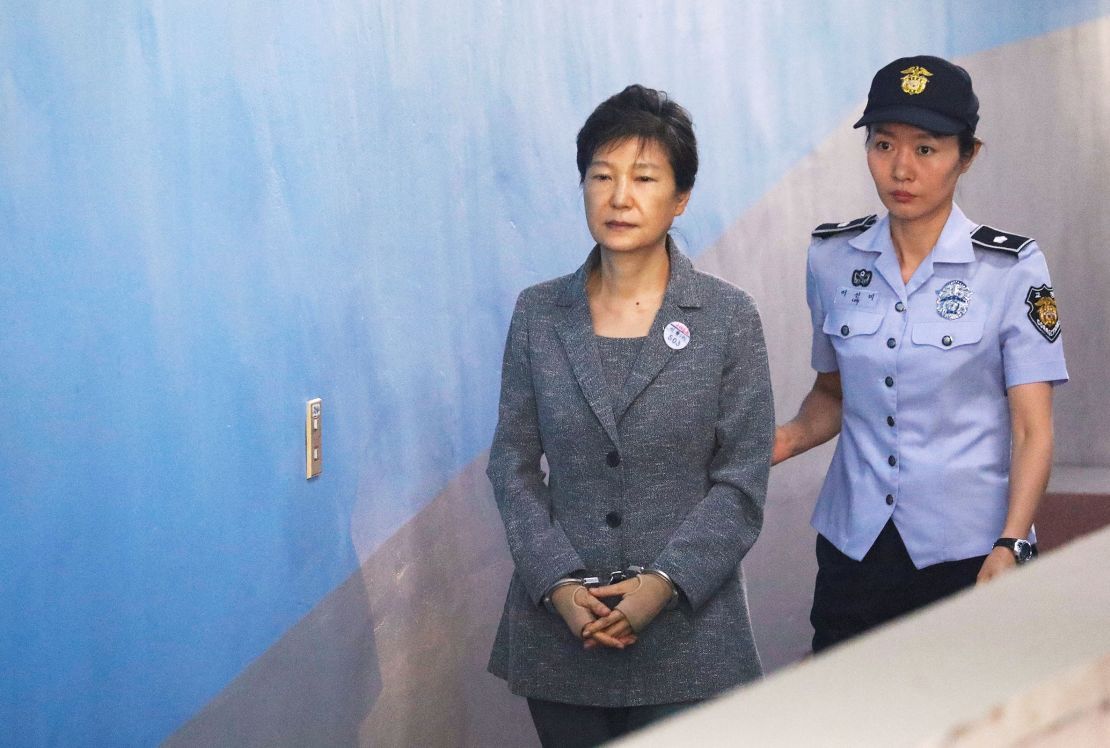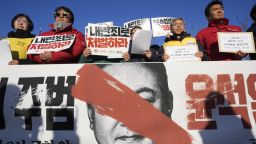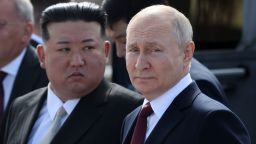CNN
—
Last year, a blockbuster movie gripped South Korea with a dramatization of a painful memory from its authoritarian past, when the assassination of President Park Chung-hee in 1979 led to a military coup and plunged the country into the iron grip of martial law.
So when South Koreans watched in shock and anger as their current president, Yoon Suk Yeol, declared martial law on live TV last night, some feared their democratic country was veering dangerously close to reenacting that dark chapter.
Yoon was forced to back down and lifted the martial law order just hours later, after lawmakers unanimously voted to block the decree amid a fierce national outcry.
The night of extraordinary events sent shock waves across the country.
“Who would have thought that in this day and age that martial law would be declared? But it happened. And it was a surprise for all of us,” retired army Lt. Gen. Chun In-bum told CNN.
But the political whiplash is far from over.
Six opposition parties submitted a bill on Wednesday afternoon calling for Yoon’s impeachment, Yonhap News Agency reported.
“The president lacks independent power now,” said Sungmin Park, a political analyst at Min Consulting in Seoul, saying Yoon’s decree had been “political suicide.”
An ignominious departure for Yoon would be far from an anomaly; many of his predecessors also fell from high office into disgrace. South Korea’s presidential history has been marked by coups, imprisonment, impeachment and an assassination as the country transitioned from decades of military dictatorship into a vibrant democracy.
The republic’s first president following independence from Japan after the Second World War was forced into exile by a student revolt in 1960. His successor held office for less than two years before being ousted in a coup.
Park, the next authoritarian president who ruled for 18 years, was shot dead in 1979 by his own intelligence chief, unleashing an era of turmoil and brutal dictatorial rule that left an indelible mark on the nation’s political psyche.
Soon after Park’s death, Chun Doo-hwan, an army major general, seized power in a coup and declared martial law, arresting opponents, closing universities, banning political activities and stifling the press.
That was the last time martial law was declared in South Korea. For many citizens who lived through that era, Yoon’s decree, however short-lived, served as a painful reminder of the oppression and terror of military rule.
In 1980, when student-led pro-democracy demonstrations broke out in the southern city of Gwangju to protest his use of martial law, Chun sent in the military to crush the uprising, killing nearly 200 people. He ruled with an iron fist until 1988, after he was forced by mass protests to allow open presidential elections demanded by a nationwide pro-democracy movement.
In the 1990s, Chun was prosecuted for the coup and the Gwangju crackdown. He was sentenced to death but later pardoned.

A robust but polarized democracy
Since the late 1980s, South Korea has transformed into a robust democracy, with regular protests, free speech, fair elections and peaceful transfers of power. But its domestic political scene remains polarized and fractious, with presidents on both sides of the political divide often facing calls for impeachment and prosecution.
Roh Moo-hyun, president from 2003 to 2008, committed suicide while under criminal investigation for alleged corruption after leaving office. His successor, Lee Myung-bak, was sentenced to 15 years in prison for corruption after stepping down.
And Park Chung-hee’s daughter Park Geun-hye, South Korea’s first female president, was impeached by the National Assembly over influence peddling by her top aide and friend. She was sentenced to 24 years in prison for corruption and abuse of power. She was later pardoned.

Leif-Eric Easley, a professor at Ewha University in Seoul, said South Korean democracy takes a high-stakes approach to both leadership and accountability.
“Political parties often rise and fall with charismatic individuals rather than provide institutional continuity based on ideology or policy,” he said.
“A scandal-hungry media and a public quick to mobilize mass demonstrations make it difficult for presidents to sustain public approval. Legacies of developmental dictatorships include significant authority being concentrated in the top office but also a constitution that limits the president to a single five-year term.
“As a result, corruption and abuse of power are frequent risks, but so is retributive justice once or after the leader has lost the moral mandate to govern.”
Yoon’s political future now hangs in the balance, as calls for his resignation mount across the political spectrum, as well as the impeachment proceedings.
The main opposition Democracy Party said it had begun formalizing plans for treason charges against Yoon and his defense and interior ministers, Yonhap News Agency reported. Yoon also faces rising discord within his party, which has opposed his move to introduce martial law and called it unconstitutional.
The ruling People Power Party is considering demanding the resignation of Yoon’s entire Cabinet and the dismissal of his defense minister, Yonhap reported. It is discussing whether to demand Yoon’s resignation, Yonhap said.
Yoon’s chief of staff and other top officials have already submitted their resignations.
CNN’s Hanna Park contributed to reporting.




